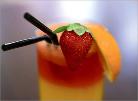Sugar Cane Juice in Diets for Growing and Finishing Pigs: Effects on Growth Performance and Carcass Trait
ABSTRACT
A study was conducted to evaluate the productive performance and carcass traits in 50 pigs (initial weight 25 kg) fed diets based on sugarcane juice (JCA) given ad libitum as the main source of energy, from the weight initial 25, 30, 40 or 55 kg, compared with a control diet based on maize as the main source of energy. During the growth phase there was no advantage in performance when pigs were fed from 55 kg JCA and also during its final stages and throughout the experiment. The features of the canal revealed no difference as a result of the introduction of the JCA in the diet of pigs. The results indicated that the CAB can be given ad libitum to the pigs from the earliest stages of growth and, possibly, dietary intake of protein may be reduced.
Keywords: sugarcane juice, behavior, pigs.
ABSTRACT
A study was conducted to evaluate growth performance and carcass traits in 50 pigs (initial weight 25 kg) fed diets based on sugar cane juice (SCJ) as the major source of energy given ad libitum since the initial weight of 25, 30, 40 or 55 kg. A control diet with no SCJ was also evaluated. During the grower phase there were advantages in growth performance when pigs were given 55 kg since SCJ, but these differences were not evident amongst treatments neither during the finisher phase nor during the entire experiment. Carcass traits did not revealed any difference as a result of the introduction of SCJ in the diet of pigs. The results indicated that SCJ can be given ad libitum to pigs since an early stage or growth, and that protein supply may be reduced.
Key words: Sugar cane juice, growth performance, pigs.
INTRODUCTION
It has been suggested that the sugarcane juice (CAB) may be the greatest source of energy in countries where sugar cane is one of the major crops [20, 21, 27]. In this sense, the removal of water from the CAB is not a necessary operation in the small-scale swine production. Furthermore, an integrated production system where the sugarcane and pigs are two major components, deserves further investigation.
In various reports it has been reported that the CAB can successfully replace the cereal ingredients in diets for pigs from the beginning of the growth phase [9, 11, 12, 19, 29], but not in others [8, 17 ]. The reasons for these contradictory results are unclear, and it has been suggested [17, 21] an inadequate adaptation of the mosaic of intestinal enzymes to utilize dietary sucrose. Following this idea, the differences in body weight of pigs to consume the JCA could be one of the factors that greatly influence on the traits of animal behavior, if the maturation of the small intestine was involved in the variations of productive performance of animals. On knowledge of the authors [8, 9, 11, 17, 20, 21, 29] has not made an assessment under homogeneous conditions, the effect of age and / or body weight of pigs on growth rate during the growing and finishing.
The CAB is composed mainly of sucrose [4] and in this connection have been known digestible energy values of JCA as high as 15.35 Kilojoule / g DM [11, 12], thus explaining the high digestibility of sucrose in growing pigs [16].
It is emphasized that the protein requirements in pigs fed with products of sugar cane, could be lower than those commonly suggested [23], due to the fact that protein supplements in diets of these guys have a better amino acid composition, decreasing and the daily amount of protein to be offered to the animals [15, 28, 32]. He has demonstrated a clear response when the animal growing and finishing pigs were fed with CAB as the sole source of energy, and varying levels of protein from soybean meal, between 150 and 400 g / day [6 ] or even between 160 and 240 g / day [22]. Perhaps the establishment of the feeding system described above with JCA [27] provides clear advantages from the standpoint of cost of production in a tropical environment, where the CAB was given ad libitum to the pigs, and if the complement of the JCA is a restricted amount of high-quality protein, 200 g / day. Bui [6] found ...
A Detox Diet Juice(also called a cleansing Diet Juice) will remove toxins and poisons from your body. The idea of a good detox Diet Juiceis to eat pure and natural foods that will aid the function of the lymph, kidneys, and liver. All foods that hinder the regime will be avoided.
Wednesday
Caa juice sugar diets for growing-finishing pigs: effects on behavior and production traits Caal
Subscribe to:
Post Comments (Atom)














No comments:
Post a Comment